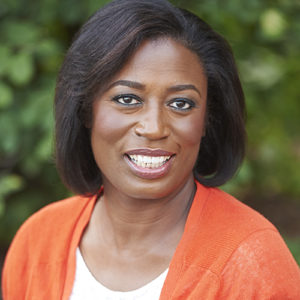Sneak Peek into FemInEm’s Idea Exchange (FIX) 2019
Featuring Dr. Patsy McNeil
We hope to see you in person at FIX 19.
And if you’re as excited as we are, we’re pleased to offer a few sneak previews of conference topics.
US Acute Care Solutions is a sponsor of FemInEm’s Idea Exchange 2019, a two-day event featuring – amongst other standard conference fare – 32 TED-style talks from women and men in Emergency Medicine.
Several of the physicians are affiliated with USACS, so we interviewed them to offer a Q&A preview of their talks.

Tell us about the talk you’re preparing.
My working title is, “Ambition is Not a Dirty Word: Tales from a Professional Mentor.” I’ve mentored a LOT of people, and have for quite some time, the majority of whom are women of all ages, high school through current attendings. I’ve noticed over years that unlike males, who are all about going after opportunities and have strategies for how to get there, you sometimes have to drag females along or they won’t go forward. Many times you have to tap them on the shoulder, or point out specifically why they should pursue a particular opportunity.
This talk is meant to be a battle cry, a rallying cry focused on telling women: often you are what is standing between you and success. I want to encourage them to strategically put themselves forward: even if they are uncomfortable, to do it anyway, even if that means they have to do it differently than a man would do it.
You mentor a lot of women. How have you been mentored throughout your career?
I’ve not really had many mentors in the traditional sense, but I’m constantly watching my peers and colleagues and taken pieces of how they went from point A to point B and learned from their experiences. I know a woman who is very timid in personality, but moved forward to a very prominent, very interesting position. Another friend has incredible negotiating skills, especially with regard to salary. I have watched them and learned from them.
Otherwise, I have more ‘sponsors’ than mentors – people who have helped advance me in my career, such as my previous EM chair. In high school I received a full scholarship to pursue my undergraduate studies.
I do have a mentor who is a great resource, and our two 45-minute talks per year are enough to keep me going.
What do you enjoy about mentoring?
I enjoy helping people understand ways that can make them more successful – pointing out their strengths and also challenging them to strengthen their weaknesses. Mostly just helping others to recognize their blind spots, both positive and negative.
Why is it important to you to speak at the FemInEm Idea Exchange 2019?
The great thing about FIX is that for me – from me – representation matters! Men don’t necessarily understand because they’ve always seen others like them do what they are aiming to do. However, some data suggests that only 1% of women have made it to the position I am in as a CMO, and for black females, it’s almost unheard of. Yet, this position could be an absolute fit for almost every woman I know. I want to represent, to offer a pathway for them to go forward.
Have you attended the conference before? What did you gain from it?
This is the third year of the conference, and it’s a good conference. It’s unique that it’s all about women in medicine, and it’s the only conference specifically for women in emergency medicine. There are no other opportunities for just women to gather in this way, and it’s really not about clinical matters, but more focused on career, political issues in medicine, and particularly how those factors impact women in emergency medicine.
What are some of the reasons you become a physician?
I have a short attention span, so I knew that emergency medicine in particular would be a good fit for my personality – I knew I would be bored with another specialty. Becoming a physician was attractive to me because it was a lifestyle fit and I enjoy taking care of people. I didn’t decide until undergraduate studies to pursue medicine – I definitely did not know at age 7 what I wanted to do for the rest of my life.
What are some issues that you are passionate about?
I’m passionate about women’s issues in general, particularly justice issues about women.
I’m passionate about equity, and access for all to quality healthcare.
I’m passionate about physicians being given the space and environment in which to do their job and focus on their specific position.
What keeps you with USACS?
I appreciate the physician ownership model, and its early and continued emphasis on women’s issues as well.

